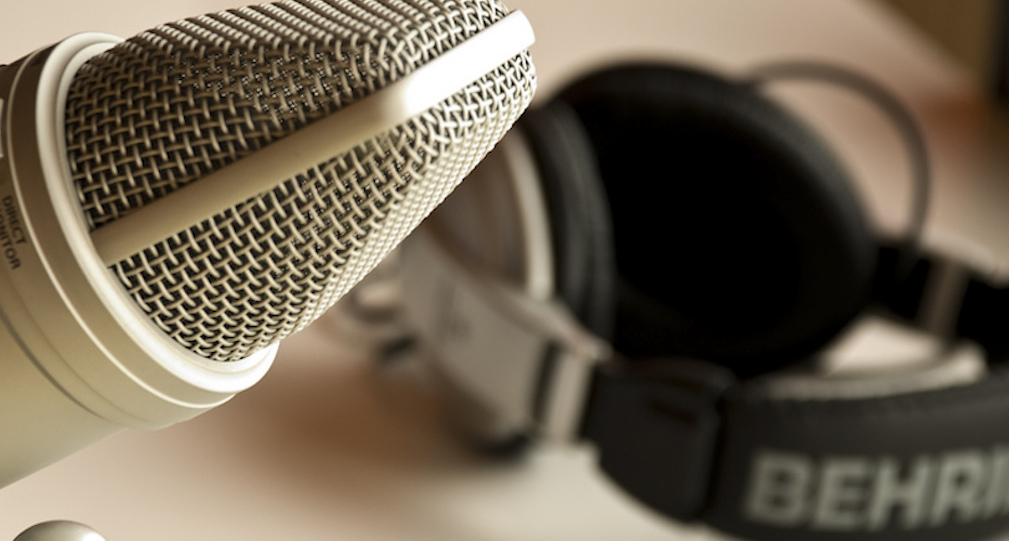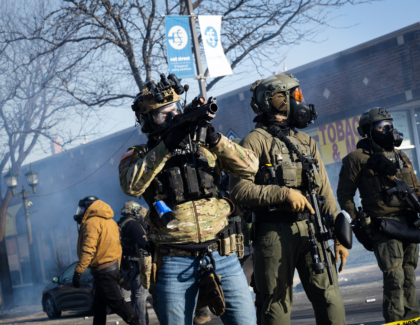Sign up for the daily CJR newsletter.
Four minutes into the interview with my Washington Post colleague, a health reporter covering the coronavirus outbreak, I heard the sound that I had been dreading: the distinct yelp of an exuberant child, disturbing the quiet of our serious podcast recording.
But for once, I wasn’t annoyed or frustrated. I was grateful.
I work on the Post’s daily news podcast, and one of the things we pride ourselves on is high-quality sound: extensive editing, sophisticated design, attention to detail. We deliver hard-hitting journalism and investigative reporting, and we want to sound professional—not like some amateur enterprise recorded out of someone’s basement.
Except, these days, we are recording out of people’s basements. And inside closets, and underneath blankets, and in households that are bursting with partners and dogs and noisy dishwashers and kids who are stuck home from school.
And suddenly, the prospect of airing those aspects of life seems not only forgivable… it feels like an injection of empathy and shared experience in these scary times.
The coronavirus outbreak has had a significant impact on my work as the host of a podcast—and, I would venture, on everyone who works in the podcast industry. It’s disrupting the basic logistics of what we do. We’re cut off from professional recording studios, we’re banned from being in the same room as our guests, we’re forced to come up with creative work-arounds. (See: the dozens of Twitter selfies from radio reporters and podcast hosts doing their work inside closets and pillow forts.)
But the outbreak is also changing the tone and content and mission of podcasts in ways that are both subtle and profound.
Now that so many people are stuck at home and isolated from friends and family and colleagues, it seems like the priority isn’t simply to use podcasts to give people information or sweeping stories or you’ll-never-believe-it serialized drama. Suddenly, there are new objectives: What will make people feel connected with the outside world? What will provide comfort and a sense of community? What will help people feel less alone?
For me and the rest of the team who work on Post Reports, it’s a subtle but meaningful shift. All of a sudden, it feels more vital than ever to respond to every listener email and question. Our podcast Facebook group, with about seven hundred members, has become a little community, a place to talk about the news, but also to share recipes for baked goods, suggestions for quarantine hobbies, and funny anecdotes from these strange times. Dozens of listeners have sent us voice memos about their coronavirus experiences. I listen to a few each night before I go to bed.
And on our podcast, we’re keeping in the little bits of audio that we would previously have edited out. When you hear our health reporter’s kids playing loudly in the next room, it’s comforting to know that he, too, understands the struggles of working from home while parenting full-time. And when our economics reporter’s explanation of the federal stimulus bill gets interrupted by his barking two-year-old mutt, Acorn, we don’t worry about rerecording. We all agree that everybody could do with a little Acorn.
In the past couple of weeks, I’ve noticed similar shifts in the tone and content of other podcasts—attempts to use the power of audio to make us all feel less alone. Even podcasts that typically rely on investigative reporting and meticulously crafted narratives are releasing episodes intended simply to provide comfort.
Phoebe Judge, host of the award-winning podcast Criminal, has started reading from an Agatha Christie novel. (Every chapter is one episode; she’s releasing a new episode every day.) The narrative podcast Heavyweight released an uncharacteristically simple audio diary of life under quarantine. Everything Is Alive set up a public Zoom call, to give listeners the opportunity to “talk about whatever.” Reply All held a series of call-ins to “check in on everybody.” (The episode title: “The Attic and Closet Show.”)
To be honest, I’ve never been that interested in call-in talk radio. I’ve always thought it was too meandering, too unedited, populated with weirdos, not particularly illuminating.
But now I understand the appeal. It’s comforting to know that a disembodied voice somewhere else in the world is seeing what you’re seeing, feeling what you’re feeling, in the exact same moment. Especially when it feels like the world is teetering on catastrophe.
The thing I’ve always loved about podcasts is their ability to collapse great distances. As a listener, you feel like someone hundreds or thousands of miles away is whispering profound ideas into your ear. It’s an intimate connection. But I’ve always thought that intimacy flowed in one direction. Until now.
Until two weeks ago, I worked in a humming newsroom with a large team of collaborators in a bustling office building. I chatted constantly with colleagues passing my desk, with friends on the elevator, with the smiling lady who rings up my lunch every day. Now I’m trapped in an apartment with a partner and a dog. I spend most of the day recording interviews in my closet. I feel bummed about all my disrupted goals and plans, heartbroken for people in my community who are facing so much worse, and scared about the future of the world. Most of all, I feel very far from most of the people I love.
In this climate, the intimacy that is inherent to audio doesn’t just seem like a blessing for listeners. To be making a podcast in these strange times feels like a tiny portal out into the rest of the world. Standing alone in my closet, clutching a microphone, hoping that other people are out there listening, I’m craving to make a connection, too.
Has America ever needed a media defender more than now? Help us by joining CJR today.







